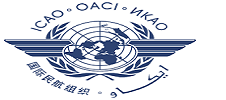Directorate General of Civil Aviation
The Directorate General of Civil Aviation (DGCA) is the regulatory body in the field of Civil Aviation, primarily dealing with safety issues. It is responsible for regulation of air transport services to/from/within India and for enforcement of civil air regulations, air safety, and airworthiness standards. The DGCA also co-ordinates all regulatory functions with the International Civil Aviation Organisation (ICAO).
Private operators were allowed to provide air transport services. However, no foreign airline could directly or indirectly hold equity in a domestic airline company. By 1995, several private airlines had ventured into the aviation business and accounted for more than 10 percent of the domestic air traffic. Today, Indian aviation industry is dominated by private airlines and these include low cost carriers, who have made air travel affordable. The Government nationalized nine airline companies vide the Air Corporations Act, 1953. These government-owned airlines dominated Indian aviation industry till the mid-1990s. In April 1990, the Government adopted open-sky policy and allowed air taxi- operators to operate flights from any airport, both on a charter and a non charter basis and to decide their own flight schedules, cargo and passenger fares. As part of its open sky policy in 1994, the Indian Government ended the monopoly of IA and AI in the air transport services. Private operators were allowed to provide air transport services. However, no foreign airline could directly or indirectly hold equity in a domestic airline company. By 1995, several private airlines had ventured into the aviation business and accounted for more than 10 percent of the domestic air traffic. Today, Indian aviation industry is dominated by private airlines and these include low cost carriers, who have made air travel affordable.
- Registration of civil aircraft.
- Formulation of standards of airworthiness for civil aircraft registered in India and grant of certificates of airworthiness to such aircraft.
- Licensing of pilots, aircraft maintenance engineers and flight engineers, and conducting examinations and checks for that purpose.
- Licensing of air traffic controllers.
- Certification of aerodromes and CNS/ATM facilities.
- Granting of Air Operator's Certificates to Indian carriers and regulation of air transport services operating to/from/within/over India by Indian and foreign operators, including clearance of scheduled and non-scheduled flights of such operators.
- Conducting investigation into accidents/incidents and taking accident prevention measures including formulation of implementation of Safety Aviation Management programmes.
- Carrying out amendments to the Aircraft Act, the Aircraft Rules and the Civil Aviation Requirements for complying with the amendments to ICAO Annexes, and initiating proposals for amendment to any other Act or for passing a new Act in order to give effect to an international Convention or amendment to an existing Convention.
- Coordination at national level for flexi-use of air space by civil and military air traffic agencies and interaction with ICAO for provision of more air routes for civil use through Indian air space.
- Keeping a check on aircraft noise and engine emissions in accordance with ICAO Annex 16 and collaborating with the environmental authorities in this matter, if required.
- Promoting indigenous design and manufacture of aircraft and aircraft components by acting as a catalytic agent.
- Approving training programmes of operators for carriage of dangerous goods, issuing authorizations for carriage of dangerous goods, etc.
Address :
Shri Faiz Ahmed Kidwai, IAS, Director General,
DGCA Opposite Safarjung Airport, New Delhi-110003.









